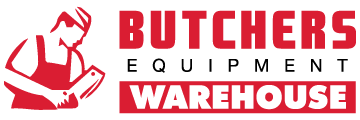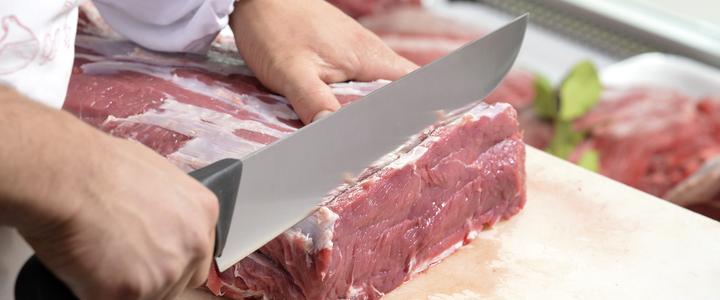Honing vs sharpening - which is best for your butcher's knife?
Maintaining a sharp blade on your knife not only makes your work easier and more efficient, but a using a sharp blade also keeps you safer at work. The ideal knife will cleanly cut and slice through meat effortlessly, and investing in a quality sharpening tool will mean that you can continue to get the best performance. However, there's an important difference between honing your butcher's knife, and sharpening it. Before you get started on refining the edge on any of your butcher's equipment, you should always take care to follow these steps first!
First, check that your knife actually needs sharpening
It may sound obvious, but it’s always important to consider the first part of the sharpening process, which is determining whether or not your knife is actually in need of sharpening.
You'll know when they aren’t performing at their best. But it’s also key to remember that keeping butchers knives sharp is also a bit of a balancing act. There is such a thing as an over-sharp knife! For example, if you’re cutting meat away from the bone, a knife that is too sharp may actually take away pieces of the bone with the meat, not only contaminating your meat with a potential safety hazard but also costing you valuable time as you’ll have to work to rectify the issue.
Similarly, using a knife that is too dull can have its own risks and dangers. A dull knife requires more pressure to be applied whilst trying to make the cut, meaning if it does slip it will do so with a considerable force which could cause some injury should your hand be in the wrong place at the time.

It’s always a good idea to double check that your knife is definitely in need of sharpening before you decide to sharpen it. There are a number of ways you can test this, but the simplest is with paper.
How to test the sharpness of a knife using paper:
- Hold a piece of paper out in front of you. Standard printer paper is fine to test with, but seeing how your knife performs with magazine pages or the pages of a newspaper will also provide a reliable guide on whether or not the blade is sharp.
- Slice the page from top to bottom, making sure to start the cut at a point that is a safe distance away from your hand.
- If the blade slices cleanly through the paper without snagging or causing a tear, and with little force or pressure behind it, your knife is sharp!
Honing vs sharpening
A blade can become dull in two ways, either when the sharp edge has been lost or when the position of the edge is not central. Honing and sharpening are two terms that are regularly interchanged, but both have different meanings and affect the blade of your knife in very different ways.
What is honing?
Honing is the term assigned to the process of realigning the blade of a knife to ensure an effective performance. When honing a knife, the rod pushes the steel edge back to a more central position. This way the edge is corrected whilst avoiding shaving large amounts of the edge material away.
Whilst honing has very little physical sharpening effect on the blade, when perfected it can allow the blade the illusion of being sharper due to the re-centring. Honing is an everyday method of giving your knife it’s extra “edge”, and can be done with a knife steel. Ideally, you should try and hone your knife as much as possible to ensure it continues to provide the best performance with each use.

What is sharpening?
The process of sharpening has a more pronounced physical effect on the edge of a knife’s blade. Sharpening a knife effectively shaves away a layer of the blade and shapes the metal into a redefined, sharper point and edge. There are several tools you can use for sharpening your knife, including sharpening stones and electric knife sharpeners.
Due to the fact that sharpening actually takes away some of the material in your knife, this process should be carried out on a less frequent basis, whilst honing can be undertaken regularly for long-term, effective, everyday knife maintenance.
If you are investing in some top-quality equipment like the stock we have here at Butchers Equipment Warehouse, it’s important to know how to properly look after it in order to keep it working at optimal performance level. For more advice on caring for your equipment or if you have a query you would like answered, give us a call on 01254 427761. Our staff are always on hand and happy to help out!




